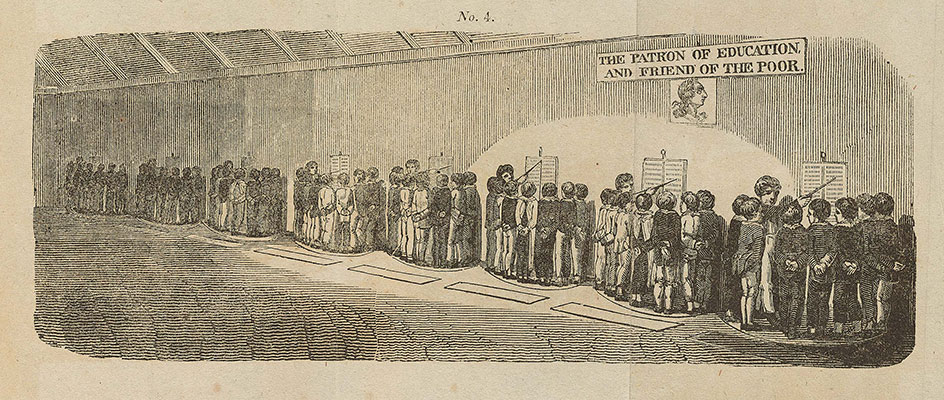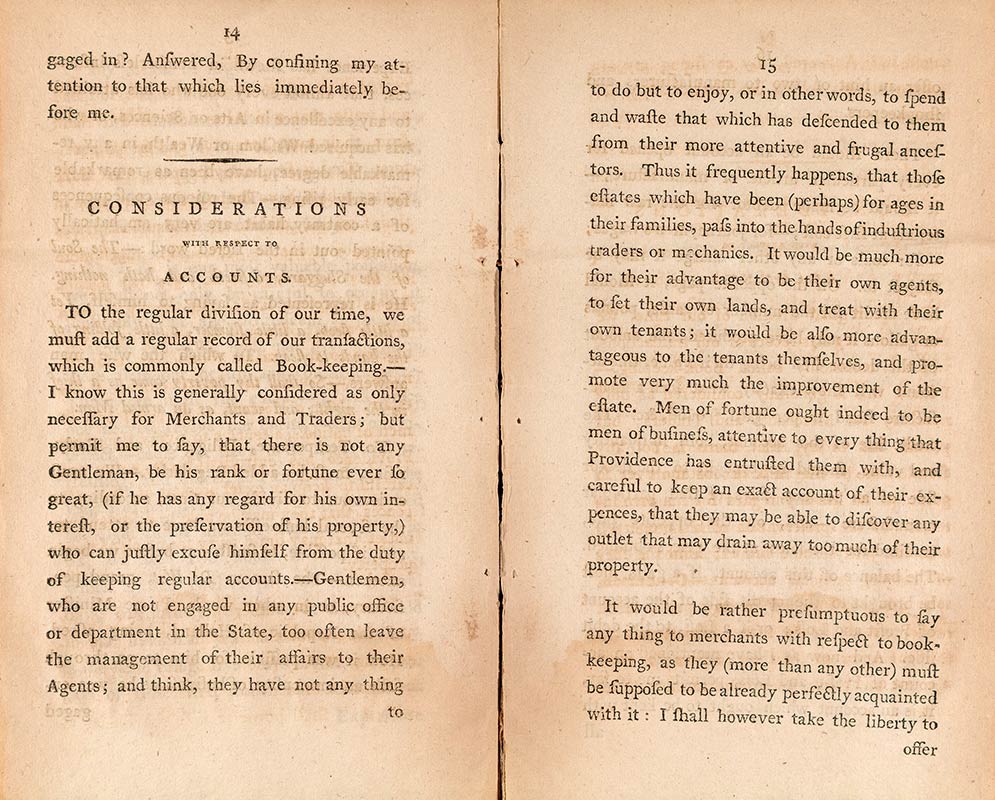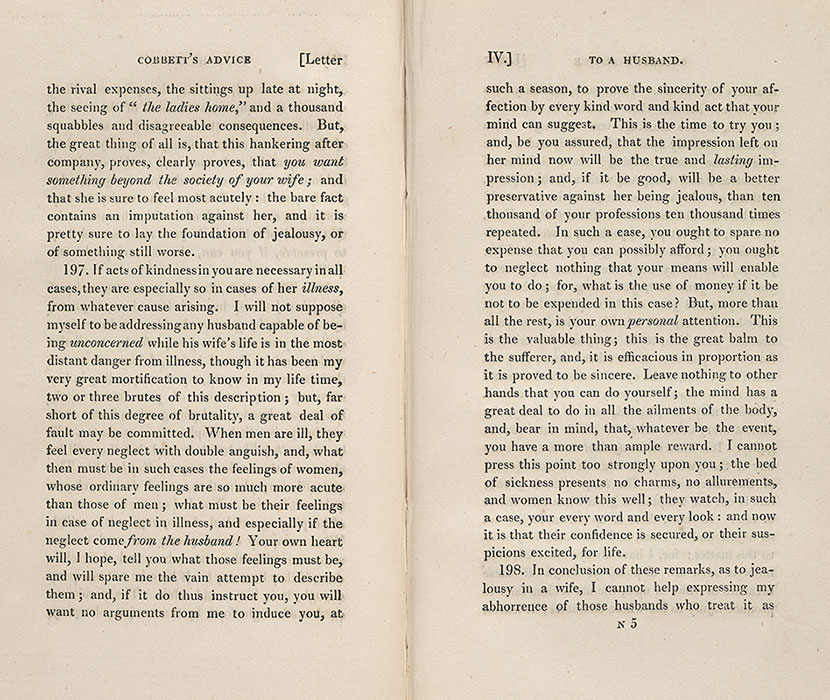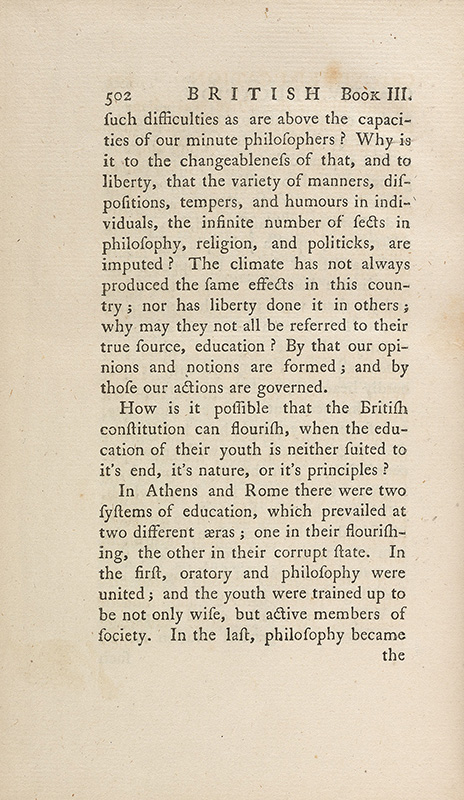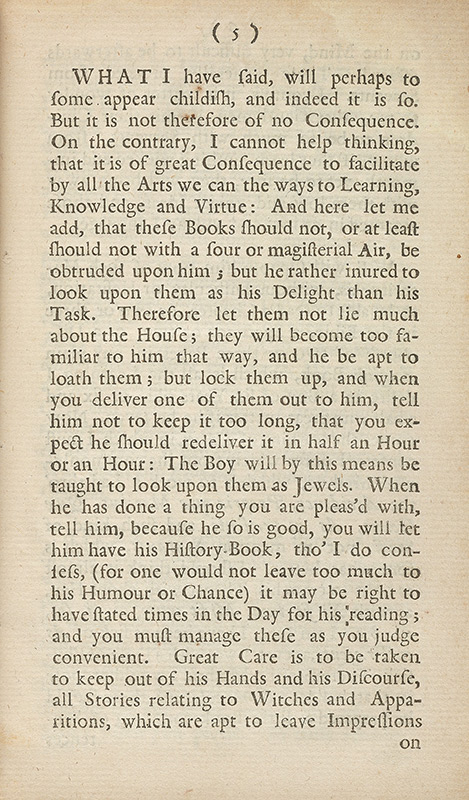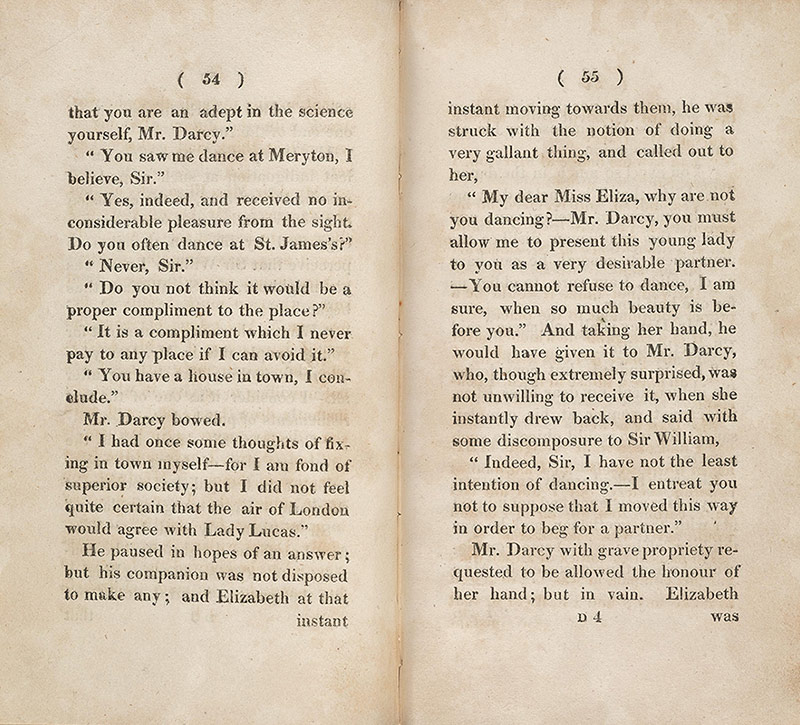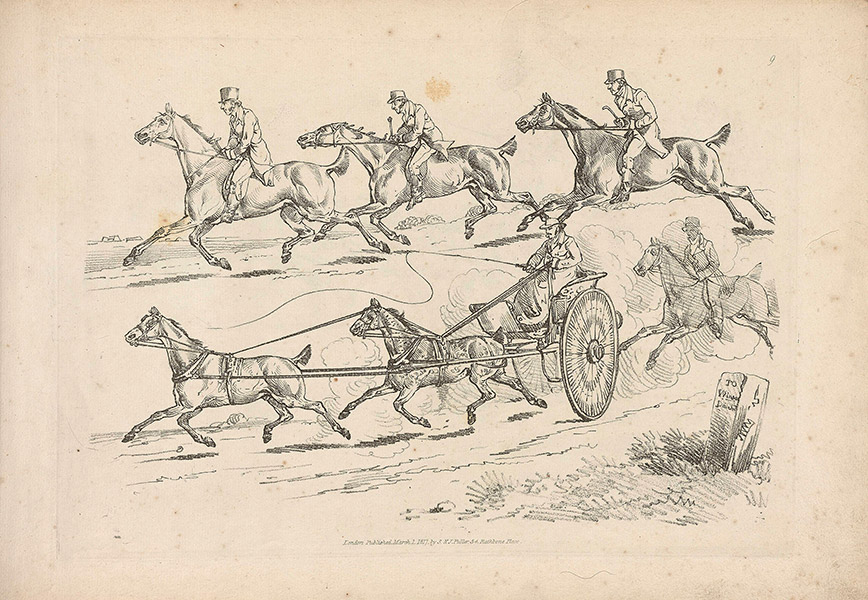Exhibit Contents
Education and Occupation
The educational opportunities for firstborn gentlemen emphasized a classical education, on the assumption that they’d live off the wealth of the properties they owned (including colonial slave plantations in many cases) while someone else managed them. Second and subsequent sons were likelier to have a slightly more practical education, typically learning estate management, studying the law or to be a member of the clergy, or enlisting in the Army or Navy. A small subset of Regency gentlemen continued their self-education through extensive reading and group activities like scientific societies.
Works Included
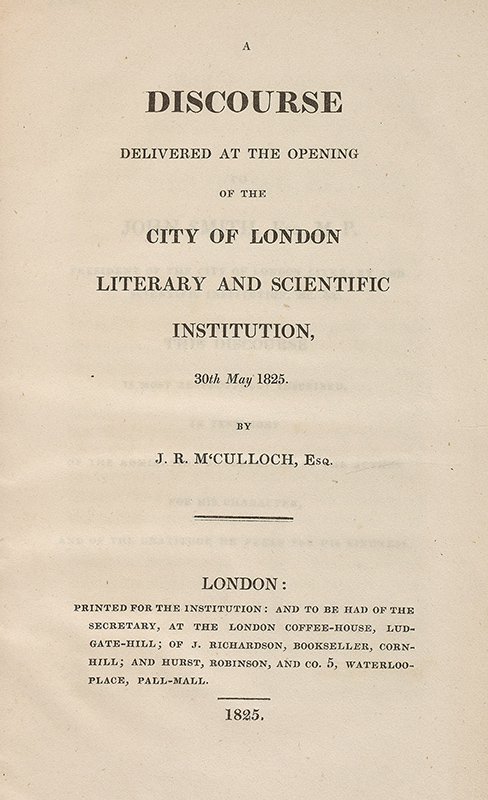
A Discourse Delivered at the Opening of the City of London Literary and Scientific Institution
Call number: Hollander 2624
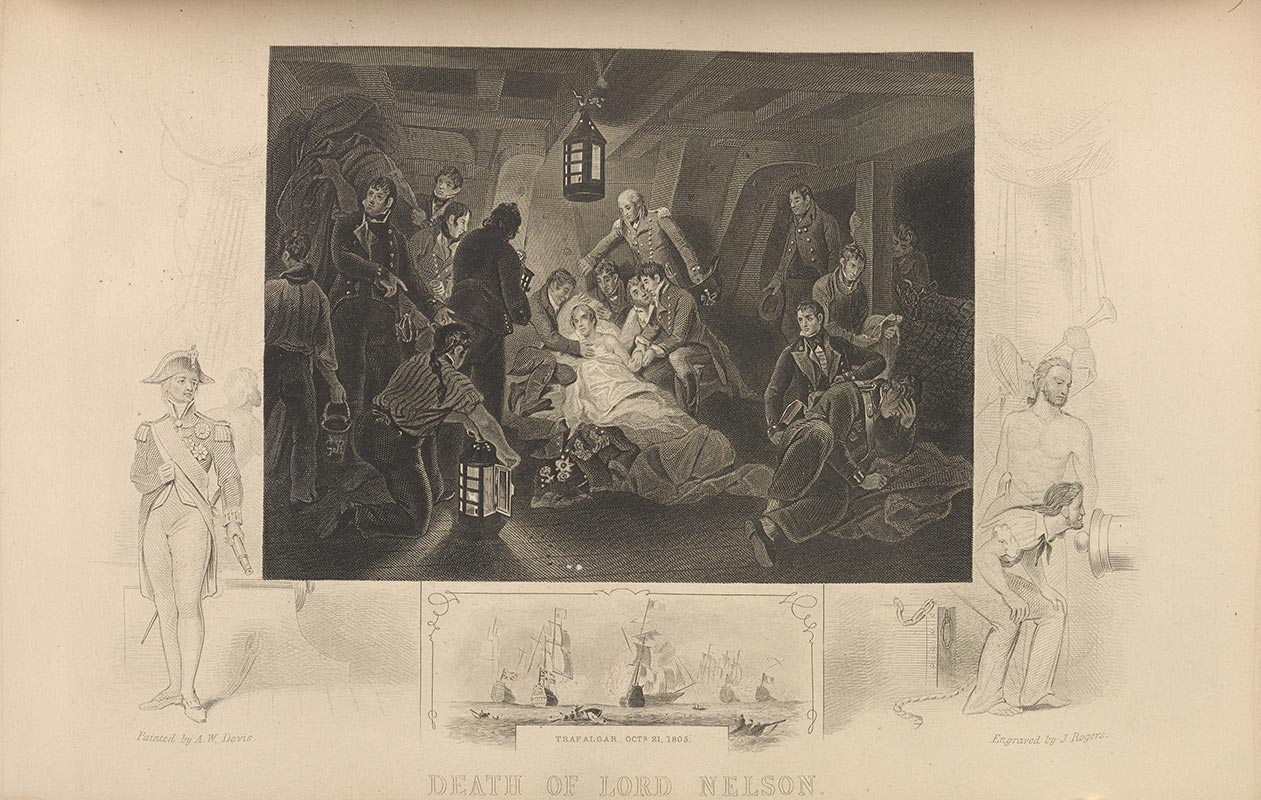
England's Battles by Sea and Land
Selected image shows the death of Admiral Nelson.
Call number: 941.081 W67e
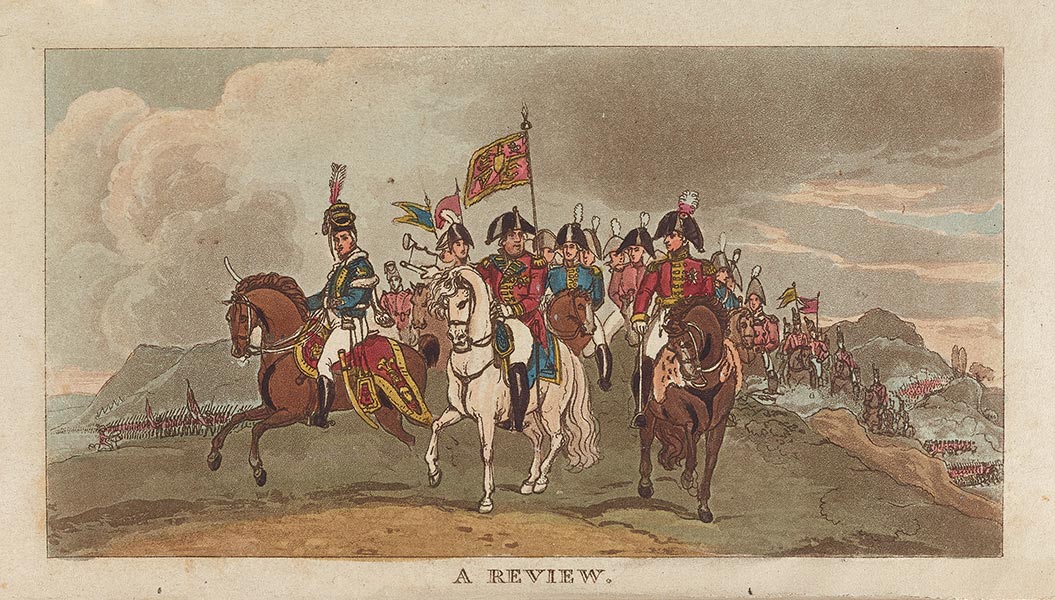
The Naval and Military Exploits which have Distinguished the Reign of George the Third
Call number: 942.07 As6n
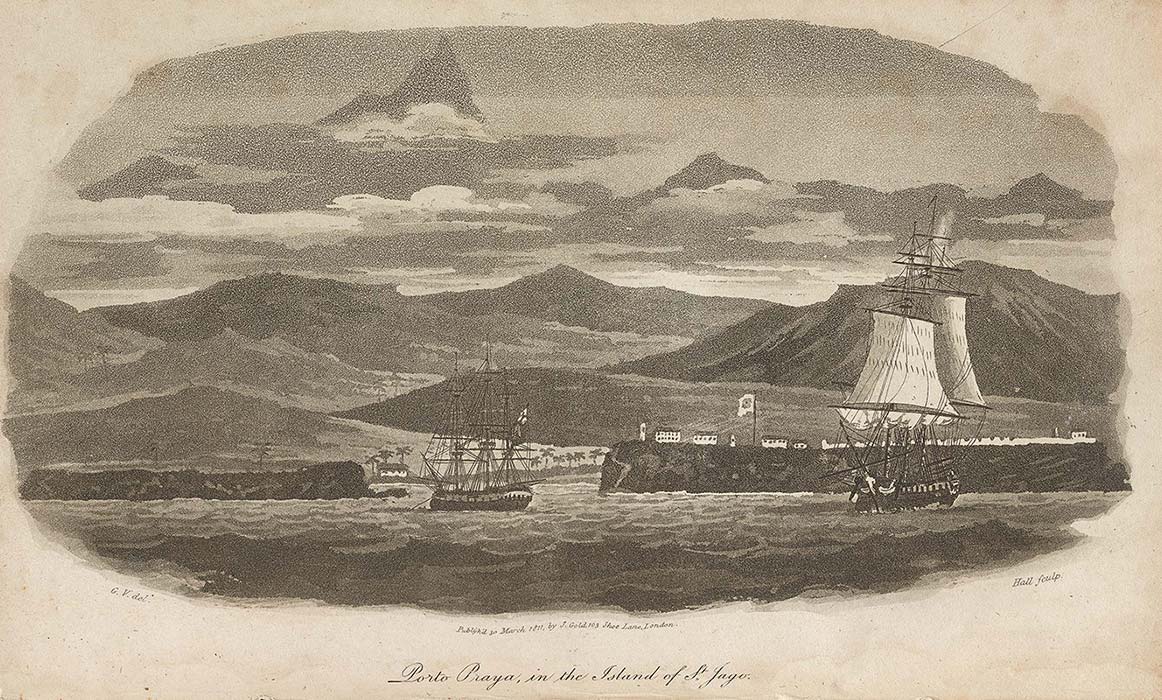
The Naval Chronicle.
This is the kind of periodical that the Miss Musgroves from Persuasion might use to track the movements of their friends and loved ones who were serving in the navy, such as Captain Wentworth.
Call number: 359.05 NA
